The actor-director tells Leon Forde about recreating Laurence Olivier’s on-set relationship with Marilyn Monroe in My Week With Marilyn.
For an actor-filmmaker whose career has often been compared to Laurence Olivier’s, it is fitting Kenneth Branagh plays the acting titan hard at work on set in Simon Curtis’ My Week With Marilyn.
Set against the fraught 1956 production of Olivier’s The Prince And The Showgirl, My Week With Marilyn follows the on-set relationship that developed between Monroe (played by Michelle Williams) and Colin Clark (Eddie Redmayne), a lowly third assistant director who becomes Monroe’s unlikely confidant. Branagh is the frustrated, tense Olivier trying to get his film in the can in the face of the superstar’s erratic behaviour. The film has picked up Golden Globe nominations for best picture — comedy or musical, for Branagh as supporting actor and for Williams as best actress in a comedy or musical.
Branagh says a major resource in approaching the role was a cache of around 60 on-set photographs from the production of The Prince And The Showgirl held at the British Film Institute.
“As much as anything, that was a key to playing Olivier,” Branagh explains, “because when you saw him, his attitude at the camera, his attitude in conversation with some of the actors, his body-language relationship with Marilyn Monroe — so much of it was wonderfully clear. You understood how enthusiastic he was, how hypnotised he was by her when he watched her as a director.” The stills also demonstrated the many sides to Olivier, he says.
Branagh also listened to Olivier’s recordings of The Bible every morning when he was in make-up at Pinewood — where The Prince And The Showgirl shot over half a century before. “As actors, it’s often a very beautiful and unusual thing to have that opportunity to take your time machine back in that way and have the fun of that, because that’s partly what you’re inviting the audience to do. But here, particularly, with all of those sort of visceral elements around — architecture, places, his voice, the look, the recreation of costumes — there was a sense of really entering a different world at a different time.”
Branagh says he and Williams did not spend much time together ahead of shooting. “I think that was probably a deliberate choice on Simon’s part for us not to be too familiar with each other,” he says. “I must say, we did have a very intuitive and natural rapport. I enjoyed acting with her a great deal and I found it quite noticeable to me how easy and effortless that was.”
Williams has drawn wide acclaim for her portrayal of Monroe. “She was an unusually free example to me of someone who is both fantastically well prepared technically, and then extremely open and creative spontaneously,” Branagh says, adding that both he and Williams felt protective towards the characters they were playing.
An actors’ icon
Branagh wrote to Olivier while a young actor at the Royal Academy of Dramatic Art (RADA) seeking advice for a role in Chekhov’s Three Sisters. The great man even replied. “He said, ‘I mustn’t give you specific advice, you’ve got to do these things yourself and you’ve got to have a bash and hope for the best.’”
Branagh’s performance was aided by a prosthetic chin-piece. “He has a bone structure I won’t have in a million lifetimes,” he says. “But we were able at least to hint at what the real man had, which was an amazing profile and that chin, that square jaw and that terrific cleft and the fleshy bottom lip.”
And what does he think Olivier would make of his take? “I would love to feel he wasn’t ashamed of it, that he felt perhaps maybe there was a moment or two that he perhaps understood or recognised as being maybe, possibly something he had touched in some way,” Branagh muses. “I would just be delighted if he didn’t feel I’d let him down.”
One of the film’s themes is performance itself and one of the on-set frustrations for Olivier is Monroe’s reliance on method acting. “I think it is one of the interesting side events in the movie because in a way it touches on people’s authenticity,” says Branagh. “And it has so many layers and paradoxes because Marilyn wishes to have this kind of particular, conspicuous, rough, edgy truth that the studios seem to be requiring and leading, as being part of what the film culture of the time was. And yet at the same time this was coming from an actress who had already made this extraordinary artifice, which was the character of Marilyn Monroe.”
My Week With Marilyn also touches on the joys and difficulties of film-making itself. Can Branagh, whose work as a director includes this year’s successful Thor, relate to Olivier’s trials on set?
“I have had the privilege of working in many different parts of the world and much of the kind of insanity and lunacy that goes on in movie-making really does happen in the same way everywhere,” Branagh says. “And so I did indeed feel Sir Laurence’s pain… Nobody’s ever kept me waiting for three days but there are certainly elements of the movie-making process where it sometimes seems inconceivable to understand why certain things are taking as long as they’re taking.”
Branagh stars in a new series of three Wallander films for the BBC to screen in early 2012. “I have things developing as a director,” he adds. “Nothing set to go yet but I’m pretty certain I’ll be directing a picture in 2012.”
Does he find it difficult to switch off as a director when acting for another director? “You can and you do and you must because otherwise you don’t learn — and one of the things that is almost the greatest privilege of being an actor who directs is the opportunity to watch other directors work… I feel as though I’ve had a wonderful ringside seat, with Danny Boyle, who’s a wonderful director, with Woody Allen, Robert Altman, all people very generous and very different. You’re never going to say for a second, ‘Oh, do you think you should put this there?’
“Generally, as a rule, I try to resist anything in my approach to acting or directing that has me utter the phrase, ‘This is the way I work,’” Branagh says. “Because the way you work just evolves, it changes.”




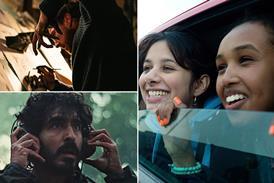
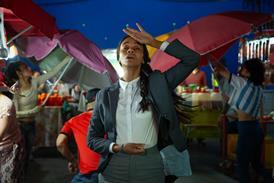
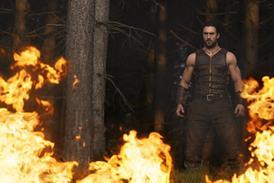





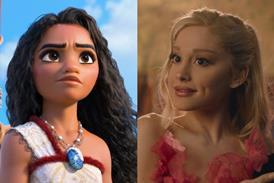
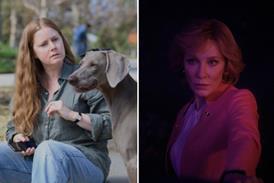
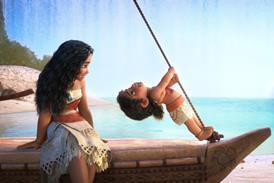
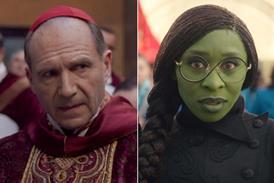
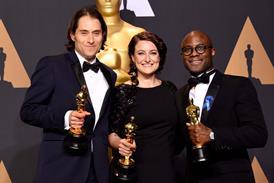





No comments yet